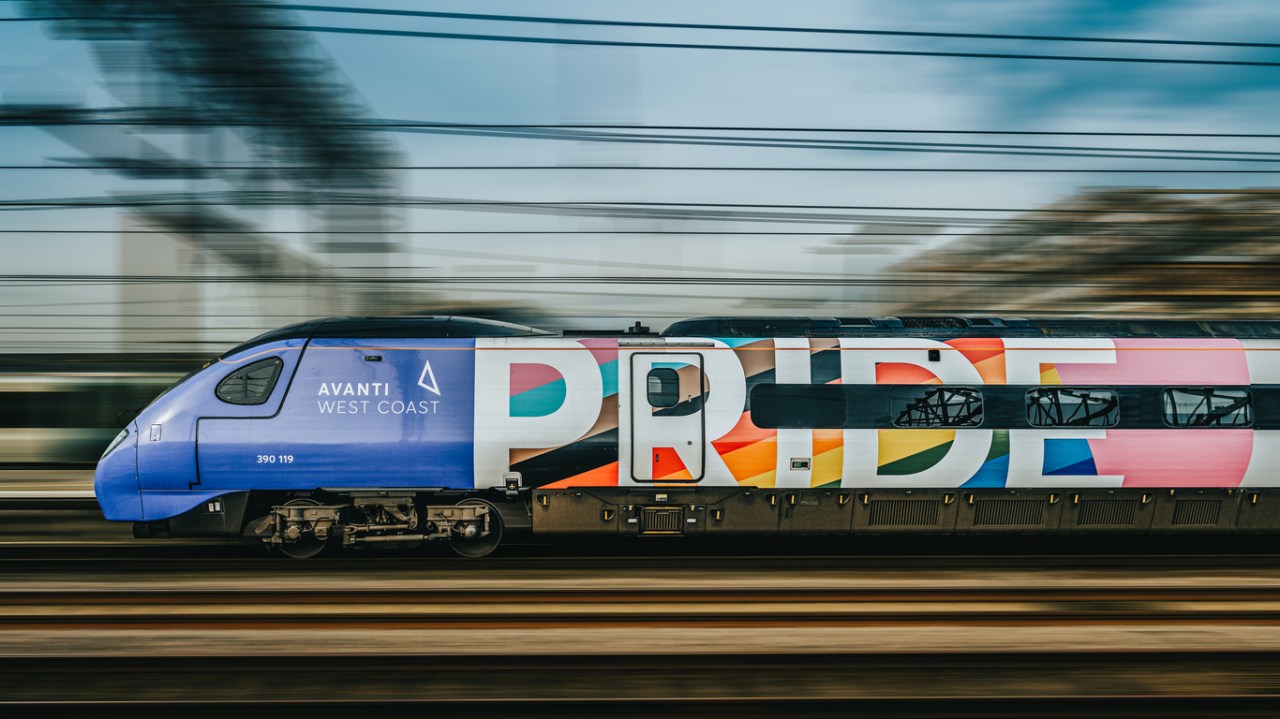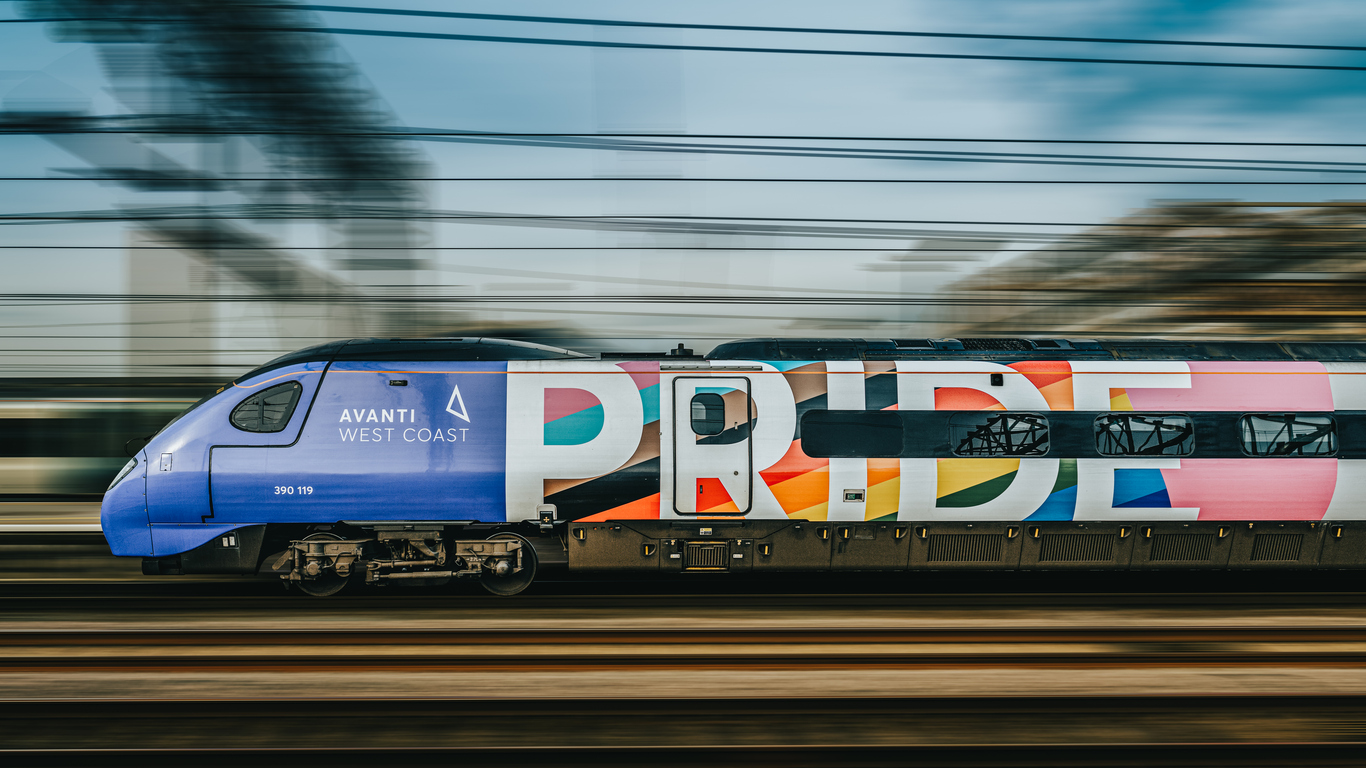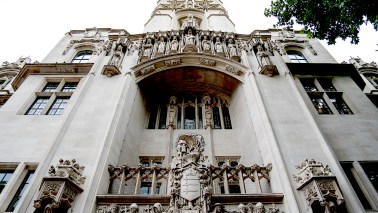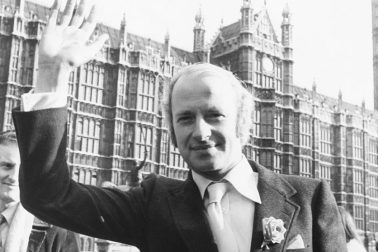My train pulled up at the Manchester Piccadilly platform and suddenly I was staring at what is apparently the largest Pride flag in the UK. Avanti’s ‘Progress Train’ is emblazoned with the latest iteration of the ‘Progress Pride’ flag – which dutifully incorporates ethnic minorities, transgender people and STD-sufferers.
The more a company chooses to focus on its social values, the more sceptical you should be of its performance
As a social conservative, it is strange to have to take a journey on a train which promotes such a contested ideological outlook – especially when that outlook is being challenged by the country at large. This year the British Supreme Court reaffirmed that the legal definition of a woman is based on biological sex, vindicating those of us who have long been sceptical of the idea of transition. Even the Labour government has issued an indefinite ban on puberty blockers.
The original Pride flag was perhaps once a legitimate expression of gay people’s desire for non-discrimination. But today we are 60 years on from homosexuality’s decriminalisation and more than a decade on from the legalisation of same-sex marriage. The insistence that sexual minorities still constitute some highly oppressed underclass is a fiction.
When I asked Avanti why I had to travel on a train promoting this ideology, they told me that ‘we don’t force anyone to travel on our trains; you can decide whether to board the train or not. That is entirely your choice.’
This seems highly disingenuous. I needed to travel from Manchester to London. The only train operator providing that service is Avanti – not because they are a superior provider, but because the rail industry is monopolistic by nature. It is not unreasonable to expect a private company in such a monopolistic position to avoid the promotion of sexual politics.
The more a company chooses to focus on its social values, the more sceptical you should be of its performance. This seems to be true of Avanti. Last year they apologised after their bosses were caught joking about receiving hundreds of millions of pounds worth of ‘free money,’ via taxpayer subsidy, presumably as they had failed to make a profit. A company which both relies on state owned infrastructure, and whose financial viability is reliant on government funding, is de facto an arm of the state.
Avanti’s woke embrace may be driven in part by the ideologies of its staff. But likely a more significant factor is that of ESG (Environment, Social, and Governance) regulations, which incentivise companies to back fashionable causes such as the LGBTQ+ agenda. Avanti West Coast is owned by First Group, who in their most recent annual report boast of having the highest possible ESG rating of AAA.
The rationale for companies seeking a high rating is clear. Institutional investors, empowered by the pension savings of ordinary people, prioritise ESG compliant investments. For instance, Scottish Widows, one of Britain’s largest pension providers, proudly integrate ESG into all of their default pensions. Therefore, if a company such as First Group wants to access this private capital they must play the game.
For Avanti, these incentives are amplified by public procurement processes. In seeking to obtain, and presumably to renew, their Department for Transport contract, Avanti must consider public procurement rules which require a clear demonstration of ‘social value.’ Enabling travel is itself a social good, of course, but the rules make clear that the social value delivered must be ‘over and above the core deliverable.’ Things like the ‘Progress Train’ therefore help businesses when it comes to applying for new government contracts.
This was demonstrated by EDF’s submission for the Sizewell C nuclear project. It included a 58-page Equality document. In the document they flaunt diversity initiatives, included sessions on Ramadan and Pride month events. A government focused on value for money would have scorned these actions, just as a rail company focused on profit would not waste time on a ‘Progress Train’.
ESG requirements and incentives must be moved from British law and regulations. Public procurement should be driven by value for money, and private companies must be allowed to solely pursue profits. Reining in the regulators and scrapping the Equality Act should be the first things to be changed.
Equality should imply neither worse nor better treatment. It can’t mean constant flaunting of group identity symbols. Nor does it require the fanfare of a crew staffed entirely by LGBTQ+ people, as was the case for the first voyage of the Avanti ‘Progress train’. These things merely exacerbate and highlight differences. Most people do not care about these labels: they just want to catch the train home.








Comments